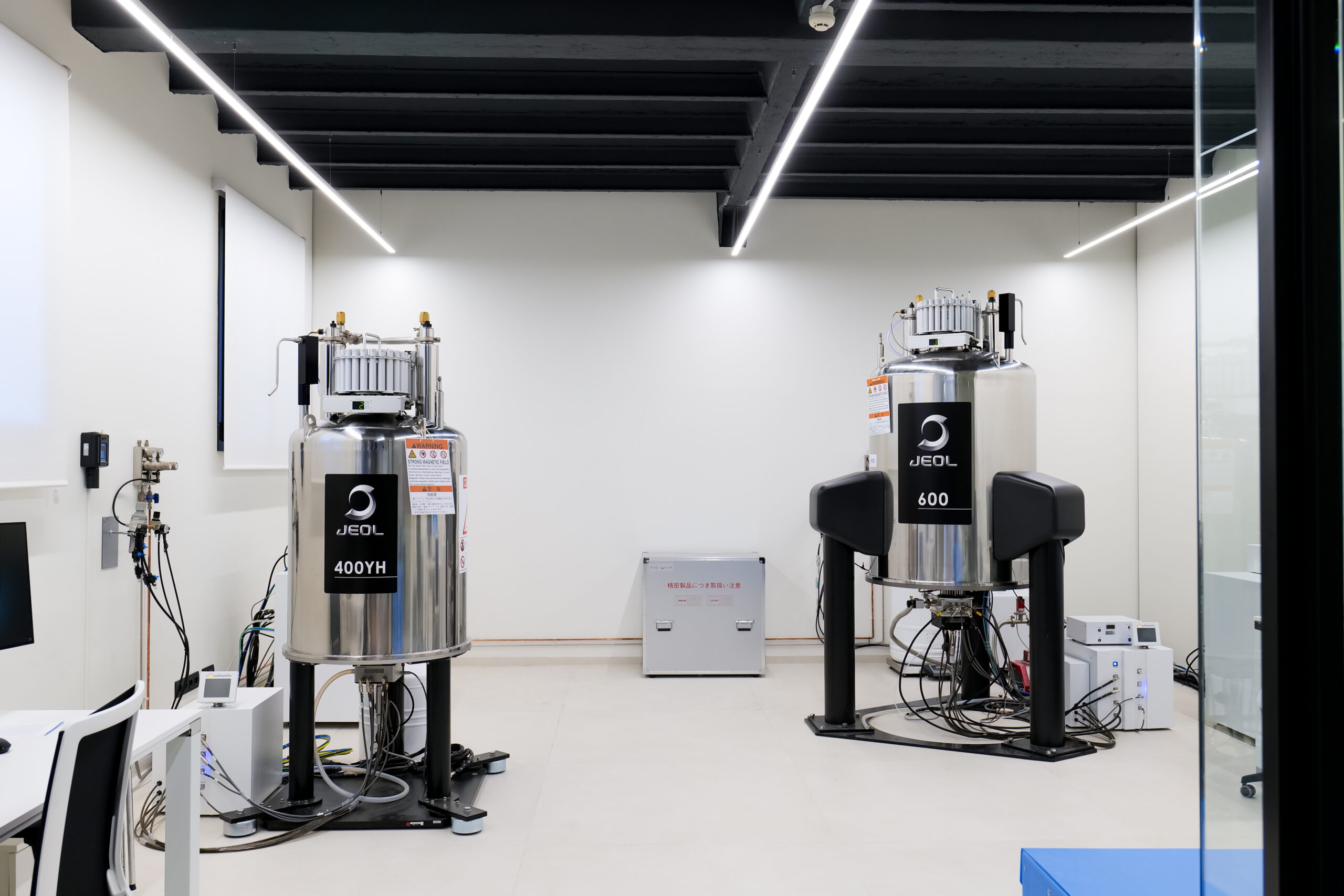On 14 October, we inaugurated the IQS-JEOL NMR Platform laboratory with great enthusiasm. This project has entailed nearly two years of teamwork, from the initial idea to defining needs, reaching agreements, building a new laboratory, acquiring the equipment, and commissioning. You can watch the video of the unboxing process to get an idea of the complexity of the different phases to adapt the space, unload the equipment (on a rainy day!), and install it.
IQS-JEOL NMR Platform: The New Laboratory for the Elucidation of Complex Molecular Structures

This new laboratory is dedicated to the advanced characterization of all types of chemical and biochemical systems and opens up vast possibilities in high-level scientific research. As highlighted by Dr Bruno Achard, Managing Director of JEOL Europe, “NMR is an irreplaceable tool for the elucidation of complex molecular structures and these new instruments position IQS at the forefront in this field.”
Dr Salvador Borrós, Director of IQS, highlighted the importance of collaboration between business and higher education, stressing that “the incorporation of these devices not only reinforces our position as a leading research centre, but also enables us to contribute to the technological development of our surroundings and form part of a global network of top-tier laboratories.”
As we can see, it involves more than just the acquisition of scientific equipment by IQS, but a collaboration signed with JEOL, a supplier of the equipment, and IZASA SCIENTIFIC, a distributor. This is the first demo labinstalled on the Iberian Peninsula, a benchmark to promote scientific research and technology transfer. Within the framework of this agreement, we aim to carry out various activities such as organizing a summer school, user meetings, and expert workshops. This installation will also be available to our partners for demonstration sessions and presentations to future customers.
Every future also has a past, and Dr Josep Saurí, head of this IQS laboratory, summarized the history of nuclear magnetic resonance technology implemented over the years at IQS. The first instrument at IQS was a Hitachi Perkin Elmer R-23 60 MHz, in 1972, with which analogue measurements were used. In the early 1980s, it was replaced by a Brucker FT-NMR, working at 80MHz and with a water-cooling system. In 1993, IQS acquired a 300 MHz Gemini Varian FT-NMR with a superconducting magnet, 2D NMR, and print plotter. In 2008, a 400 MHz Varian MR FT-NMR was acquired, also with a superconducting magnet, 2D NMR, pulsed field gradient probe, and software for data processing.
In this new laboratory we are making a great leap forward, incorporating two high-performance instruments:
- JEOL ECZL-R 400 MHz, open access for liquid state and solid state, for advanced research projects
- JEOL ECZL-R 600 MHz, higher performance, as a nitrogen cryoprobe + RT probe, which works in liquid state for advanced research projects
This platform will serve both teaching, internal research, and industry through IQS Tech Transfer services.
In short, it is a very important milestone for IQS students, professors, and researchers, not to mention our collaborators on this project (JEOL and IZASA Scientific) as well as the companies and entities in our surroundings that know that research and transfer activities are part of our mission at IQS.
The IQS Tech Transfer team would be pleased to provide you with any additional information.
Dr Nuria Vallmitjana
Director of IQS Tech Transfer









